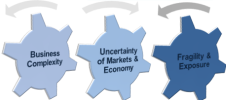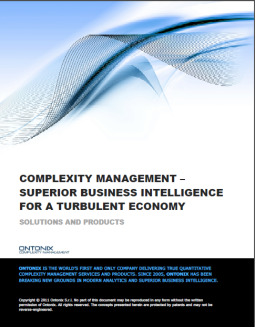Can Complexity Thinking Fix Capitalism?
Tuesday, 24 September, 2013 2 Comments
See on Scoop.it – Complexity & Resilience
Can Complexity Thinking Advance Management and Fix Capitalism?
“An intense effort at regulating the banks has side-stepped the root cause—a lack of transparency—and instead has tried to build fences around the problem. But fences won’t help in the case of a global financial meltdown: the amounts of money involved are just too large. If we want to avoid an even larger meltdown in future, the only solution is to have transparency on what the banks are up to. It’s possible that complexity thinkers like Mark Buchanan may be able to help devise mechanisms that constitute a step towards the needed transparency. But the key requirement here is political will to insist on transparency, not the modelling of complexity science”
See on www.forbes.com
Related articles
- The Dynamic Properties of Complexity and Business Resilience (fitforrandomness.wordpress.com)














